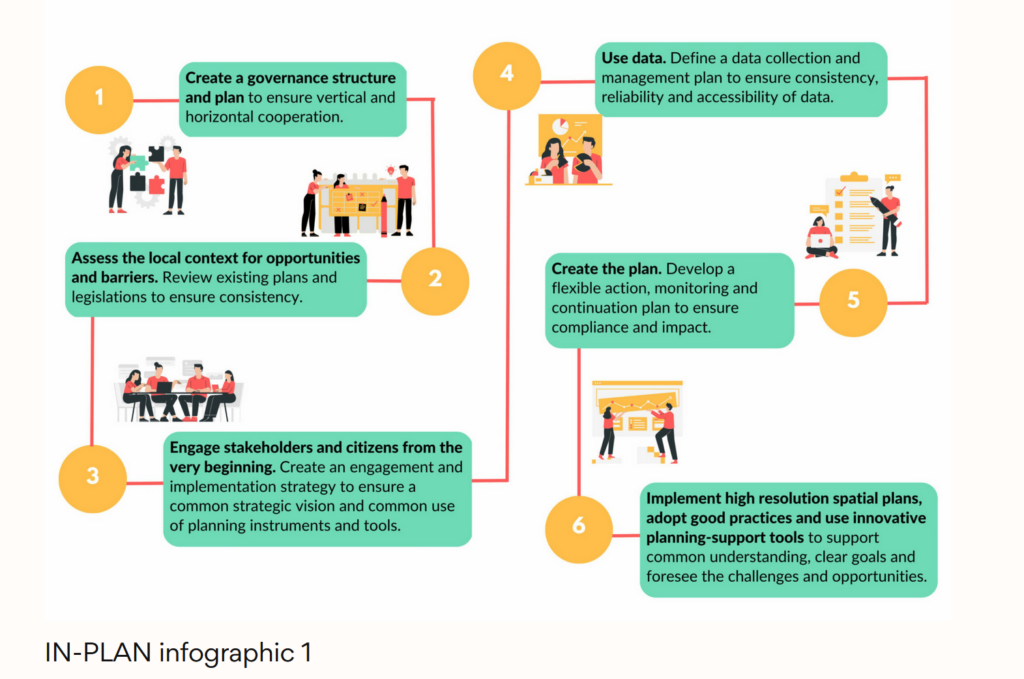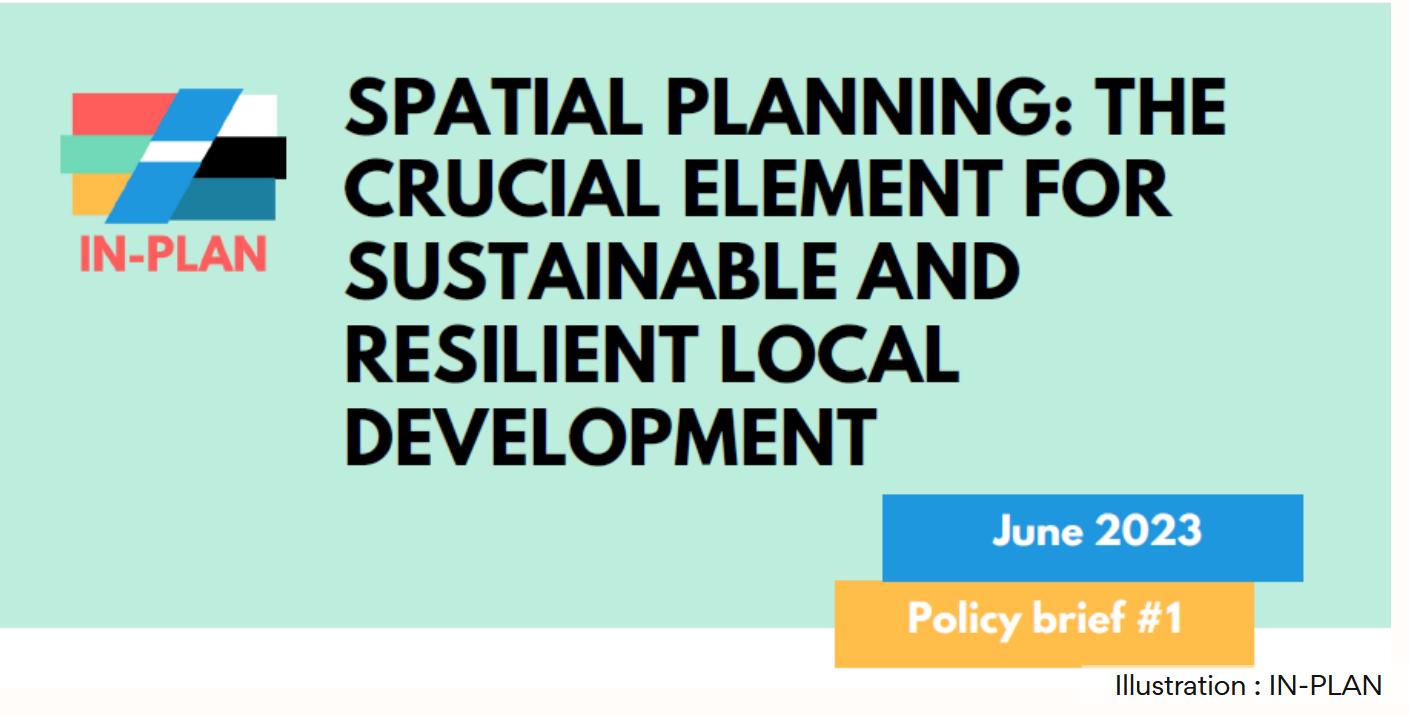In its 1st policy brief from June 2023, IN-PLAN presented six practical steps for regional and local authorities to integrate energy, climate, and mobility into spatial planning. Also, it outlined five integrated planning phases developed in the IN-PLAN practice that aims to facilitate the effective implementation of sustainable energy, climate, and spatial plans.
Six Steps to successfully integrate energy and climate planning
Based on a literature and good practices review, the partners identified key learnings from integrated planning approaches and practices. IN-PLAN recommends six key steps to success for regional/local authorities and urban planners to implement a successful integrated planning approach.

Assessing Authorities’ Capacities and Needs – key takeaways
While developing the IN-PLAN Practice, the five regional partners consulted their local and regional authorities through a survey and several workshops. As they were mentioning their goals, they declared their need for support in better integration of existing strategies into spatial plans, while taking a more critical look at current planning processes and dealing with differing stakeholder interests.
| Buildings | Decarbonising heating and cooling |
| Heightening energy efficiency in the current building stock | |
| Mobility | Increasing air quality (e.g. low emission zones) |
| limiting urban traffic | |
| increasing sustainable mobility | |
| RES development | Supporting local production, distribution, and storage |
| Resilience | Reducing the heat island effect |
| Reducing the impact of natural hazard | |
| Risk mitigation |
The complete results of the survey are available in the Capacity Gap Assessment.
IN-PLAN Practice: How-To Guidance for integrated spatial planning
The IN-PLAN Practice is an adaptable document structured in five successive phases intended for the participating authorities to step up their long-term energy and climate planning by integrating relevant parts into their spatial plans. The IN-PLAN Practice provides authorities and spatial planners with:
- a checklist of what to do and bear in mind,
- concrete “How to” guidelines, examples of best practices,
- explanations and links to existing tools,
- techniques and methods, and
- intended outcomes after each step.
Get involved with IN-PLAN
Regional and local authorities, and energy, climate, or development agencies are welcome to join IN-PLAN, to be trained on and apply the practice in their local context. The IN-PLAN practice will empower and provide them with a unique opportunity to receive support for their integrated planning processes, both from EU-level actors and from other authorities and agencies, exchanging and learning from their peers around Europe. Any questions? Contact info@lifeinplan.eu.

